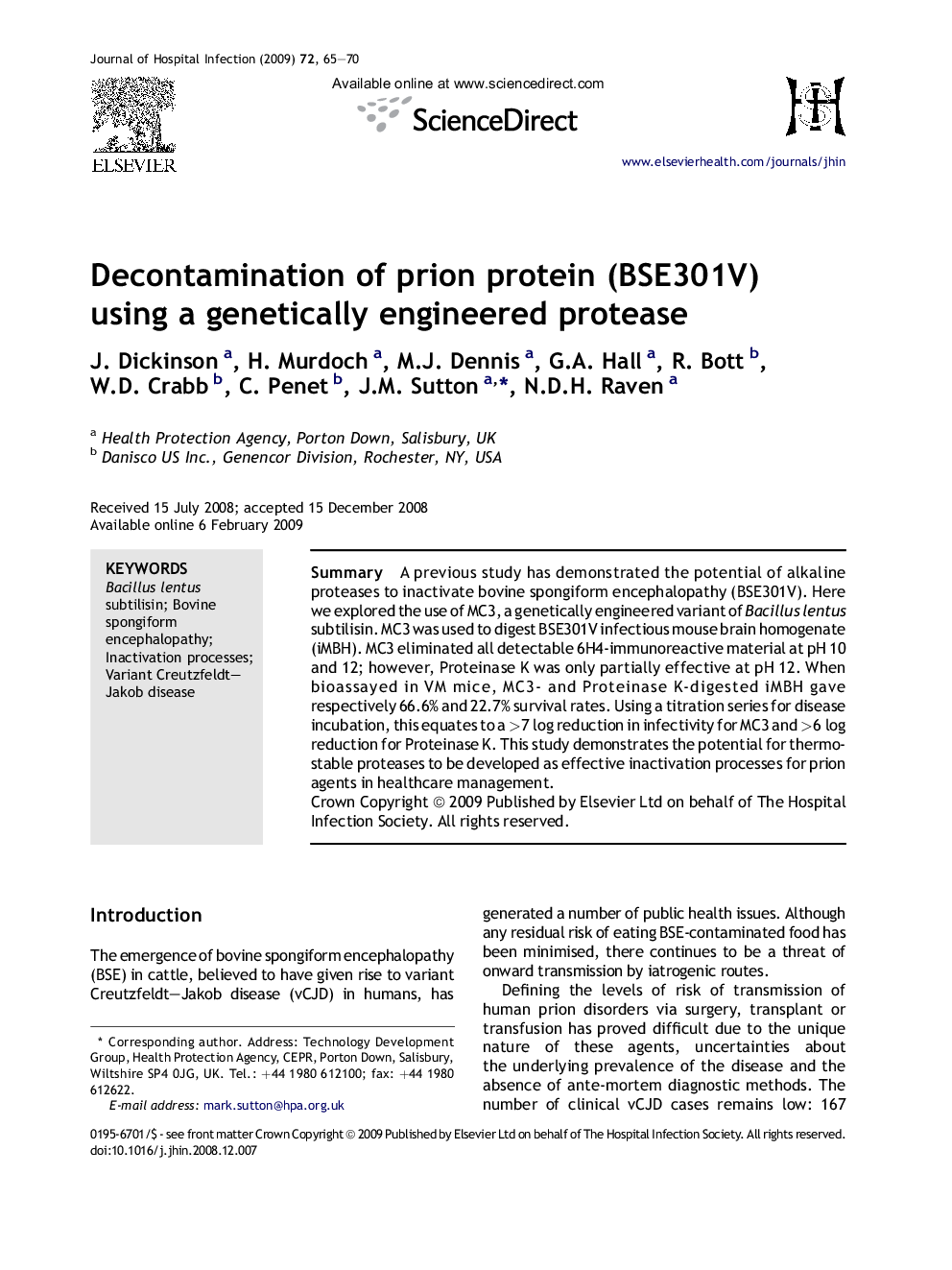| Article ID | Journal | Published Year | Pages | File Type |
|---|---|---|---|---|
| 3373116 | Journal of Hospital Infection | 2009 | 6 Pages |
SummaryA previous study has demonstrated the potential of alkaline proteases to inactivate bovine spongiform encephalopathy (BSE301V). Here we explored the use of MC3, a genetically engineered variant of Bacillus lentus subtilisin. MC3 was used to digest BSE301V infectious mouse brain homogenate (iMBH). MC3 eliminated all detectable 6H4-immunoreactive material at pH 10 and 12; however, Proteinase K was only partially effective at pH 12. When bioassayed in VM mice, MC3- and Proteinase K-digested iMBH gave respectively 66.6% and 22.7% survival rates. Using a titration series for disease incubation, this equates to a >7 log reduction in infectivity for MC3 and >6 log reduction for Proteinase K. This study demonstrates the potential for thermostable proteases to be developed as effective inactivation processes for prion agents in healthcare management.
